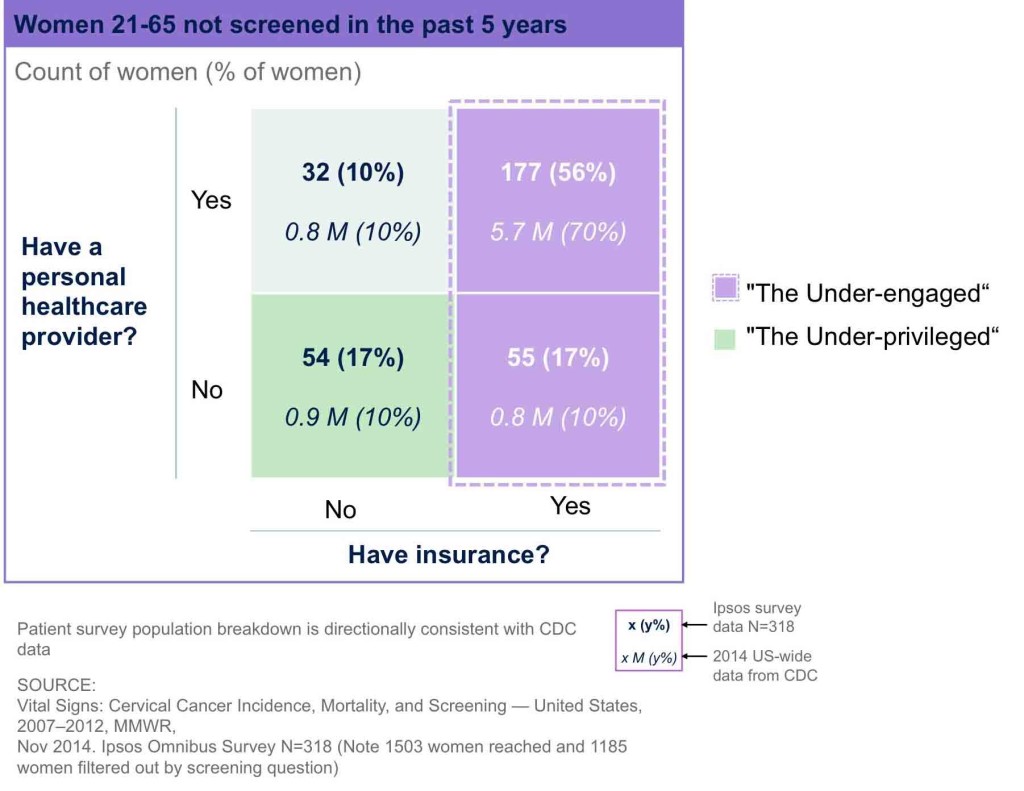Why it is time for innovation in the fight against cervical cancer
When caught early, cervical cancer is a preventable disease—and does not need to take the lives of over 4,000 women in the US per year. Yet ~30% of women have not had a Pap test in the last three years. Surprisingly, 56% of un-screened women have insurance as well as a primary care physician. So what are the barriers for not receiving critical preventive screening? Most women cite that “the test makes me uncomfortable” or “I don’t think it applies to me” as reasons for not going in.
How do we remove the barriers from this critical test? Cervical cancer screening is an important part of women’s healthcare, however getting past the anxiety most women feel around this subject has yet to be solved by the healthcare community. The need for accessible disease education, less invasive testing methods, and clear communication about insurance coverage are all challenges to engaging women in this critical part of their health.

Creating clarity—what insurance has to offer
Providers know that simply having insurance isn’t enough in this area. 73% of women who go unscreened have access to health insurance that will cover the full cost of the test—yet most women believe that they will get stuck with the bill. With the passage of the Affordable Care Act, we are making progress in this area with an increase in early diagnosis, however more needs to be done to further increase screening in those who have easy access to insured care.
What can you do?
Can we borrow concepts from other industries that successfully educate their customers and move them to action? Is it possible to apply IoT (Internet of Things) technology to screening tools? Are innovators already working on solutions?
To find answers to these questions, Genentech is sponsoring The Quest Award which, provides healthcare startups the opportunity to help end cervical cancer through bold new solutions. There is so much work to be done in the areas of raising awareness, education, reducing the stigma of the test, and improving screening technology. The Quest Award runs January 4, 2016 – February 11, 2016. Five finalists will be selected to present to a panel of judges in San Francisco on April 4, 2016 where the winner will be awarded mentorship and a $50,000 prize.
Apply today and join the quest to fight cervical cancer!
